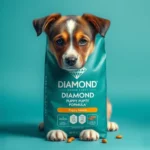
Introduction
When it comes to dog nutrition, understanding what foods are safe and beneficial for our furry friends is crucial. A well-balanced diet contributes to their overall health and well-being, impacting their energy levels, coat condition, and lifespan. One question that often arises among dog owners is whether their pets can have certain human foods, including balsamic vinegar.
Balsamic vinegar is a popular condiment known for its rich flavor and versatility in various dishes. However, its suitability for dogs is a topic that deserves careful consideration. This article aims to explore the safety and nutritional implications of feeding dogs balsamic vinegar. What should you know before adding balsamic vinegar to your dog’s diet?
Understanding Dog Nutrition
Basic Nutritional Needs of Dogs
Dogs, like humans, require a balanced diet to thrive. Their nutritional needs can be broadly categorized into macronutrients and micronutrients.
- Macronutrients: These include proteins, fats, and carbohydrates.
- Proteins are essential for building and repairing tissues. They are a crucial part of a dog’s diet, providing the building blocks for muscles, organs, and immune function.
- Fats offer a concentrated source of energy and are vital for absorbing certain vitamins. They also contribute to healthy skin and coat.
-
Carbohydrates provide energy and help with digestive health.
-
Micronutrients: Vitamins and minerals play essential roles in various bodily functions, including bone health, immune support, and metabolic processes.
-
Water: Often overlooked, water is vital for hydration and overall health. Dogs should always have access to fresh water.
Common Dietary Requirements by Age and Size
Dogs have varying nutritional needs based on their age and size.
- Puppies require a diet high in protein and fat to support their rapid growth and development.
- Adult dogs need a balanced diet to maintain their health and energy levels, while senior dogs may benefit from lower calorie options to help manage weight and joint health.
Additionally, size matters. Small, medium, and large breeds have different caloric needs and dietary considerations. For example, larger breeds may be prone to joint issues, necessitating specific nutrients for skeletal health.
Introduction to Balsamic Vinegar
What is Balsamic Vinegar?
Balsamic vinegar is a type of vinegar originating from Italy, known for its deep, complex flavor. It is made from freshly crushed grape juice, which is then aged in wooden barrels, resulting in a sweet-tart flavor profile that enhances various dishes.
There are two main types of balsamic vinegar: traditional and commercial. Traditional balsamic vinegar is made using time-honored methods and can be quite expensive, while commercial balsamic vinegar is more widely available and often includes added sugars and preservatives.
Nutritional Profile of Balsamic Vinegar
The nutritional profile of balsamic vinegar includes:
- Calories: Generally low in calories, making it a popular choice for flavor without added calories.
- Carbohydrates: Contains a small amount of carbohydrates, mainly from naturally occurring sugars.
- Acids: The acetic acid in vinegar is known for its potential health benefits for humans, such as aiding digestion and regulating blood sugar levels.
However, while balsamic vinegar has benefits for humans, its implications for dogs are less clear.
Can Dogs Have Balsamic Vinegar?
Safety Considerations
When considering whether dogs can have balsamic vinegar, it’s essential to adhere to general guidelines for feeding human foods to dogs. While some human foods are safe and beneficial, others can pose risks.
- Acidity: The acidity of balsamic vinegar may irritate a dog’s stomach, leading to gastrointestinal discomfort, including vomiting or diarrhea.
- Sugar Content: Many commercial balsamic vinegars contain added sugars, which can be harmful to dogs. Excess sugar can contribute to obesity, dental problems, and conditions like diabetes.
Expert Opinions
Veterinarians generally advise caution when it comes to feeding dogs human foods, including balsamic vinegar. While a small amount may not cause immediate harm, it’s crucial to monitor for any adverse reactions.
For instance, some dogs might experience digestive upset after consuming even a small amount of balsamic vinegar. Other dogs may have no issues at all, highlighting the variability in individual tolerance.
Healthier Alternatives to Balsamic Vinegar for Dogs
Safe Vinegar Options
If you’re looking to enhance your dog’s meals with a vinegar-like flavor, consider alternatives that are generally safer:
-
Apple Cider Vinegar: Known for its potential health benefits, apple cider vinegar can be diluted and added to your dog’s food. It’s believed to promote digestive health and can even help repel fleas.
-
Other Dog-Friendly Flavor Enhancers: Consider using herbs and spices that are safe for dogs, like parsley or ginger, to add flavor to their meals without the risks associated with vinegar.
Homemade Dog Treat Recipes
Creating homemade dog treats allows you to control the ingredients and ensure they are dog-safe. Here are a couple of simple recipes:
- Peanut Butter and Pumpkin Treats:
- 1 cup of pumpkin puree
- 1/2 cup of natural peanut butter (ensure it’s xylitol-free)
- 2 cups of whole wheat flour
-
Mix ingredients, roll out dough, and cut into shapes. Bake at 350°F (175°C) for about 20 minutes.
-
Sweet Potato Chews:
- Slice sweet potatoes lengthwise into 1/4-inch thick strips.
- Bake at 250°F (120°C) for 3 hours or until dried and chewy.
These recipes allow you to provide flavorful snacks without harmful additives.
When to Consult a Veterinarian
Signs of Dietary Distress
If you decide to introduce new foods into your dog’s diet, be vigilant for signs of gastrointestinal distress. Symptoms may include:
- Vomiting
- Diarrhea
- Lethargy
- Appetite loss
If your dog exhibits any of these signs after consuming new foods, consult a veterinarian promptly.
Tailoring Nutrition to Individual Dogs
Each dog is unique, with dietary needs influenced by factors like breed, age, and health conditions. A veterinarian can help tailor a nutrition plan that accommodates these factors, ensuring your dog receives the best possible diet.
Conclusion
In summary, while dogs can have balsamic vinegar, it is not recommended due to its acidity and potential sugar content. Understanding your dog’s nutritional needs and prioritizing safe, healthy food options is essential for their well-being.
Instead of balsamic vinegar, consider exploring alternatives like apple cider vinegar or homemade treats that can enhance your dog’s diet without the associated risks. Always consult with a veterinarian before introducing new foods into your dog’s diet to ensure it aligns with their individual health needs.
Frequently Asked Questions (FAQs)
Can dogs have any type of vinegar?
While some types of vinegar, like apple cider vinegar, can be beneficial in moderation, others, like balsamic vinegar, may pose risks due to their acidity and sugar content.
What are the consequences of feeding dogs balsamic vinegar?
Feeding dogs balsamic vinegar can lead to gastrointestinal upset, including vomiting or diarrhea, particularly due to its acidity and potential sugar content.
What should I do if my dog accidentally eats balsamic vinegar?
If your dog consumes balsamic vinegar, monitor them for signs of distress. If they show symptoms like vomiting or diarrhea, consult your veterinarian for advice.
Are there any benefits to feeding dogs vinegar?
Certain types of vinegar, such as apple cider vinegar, may have health benefits for dogs, such as improved digestion and flea prevention, when used in moderation.
By understanding and prioritizing proper nutrition for your dog, you can ensure they lead a happy and healthy life.









